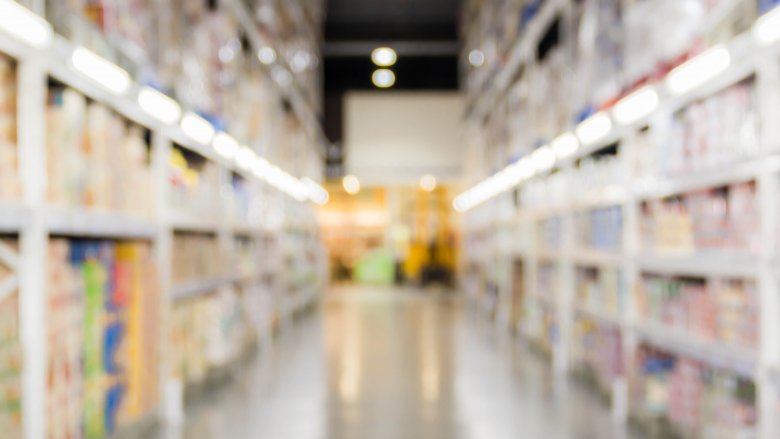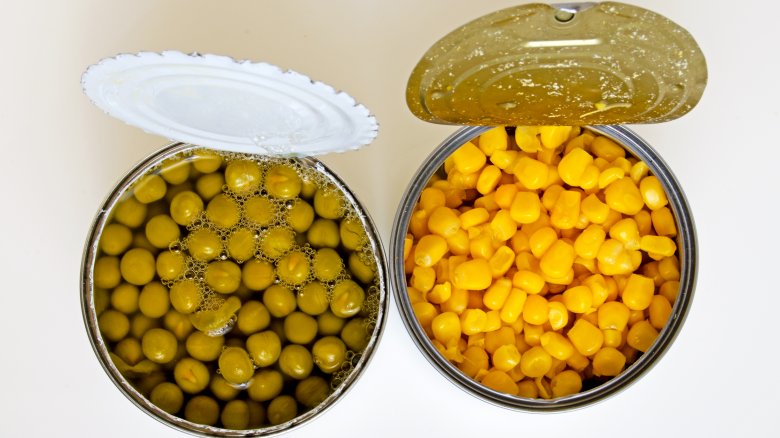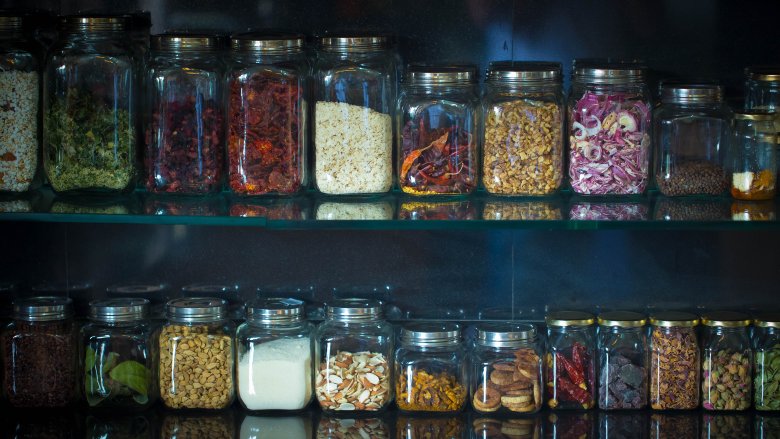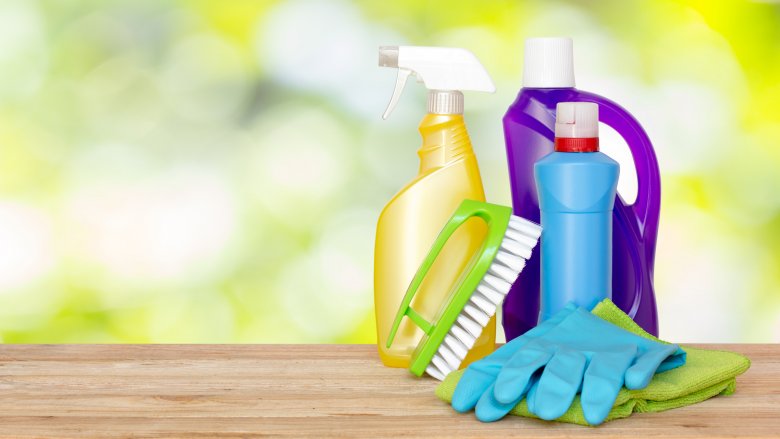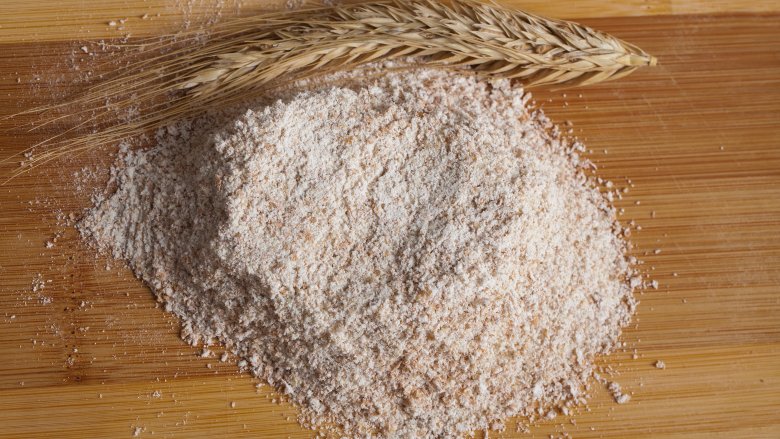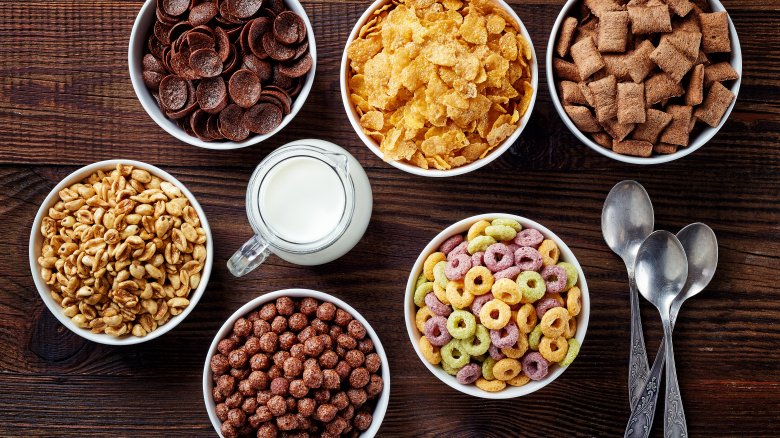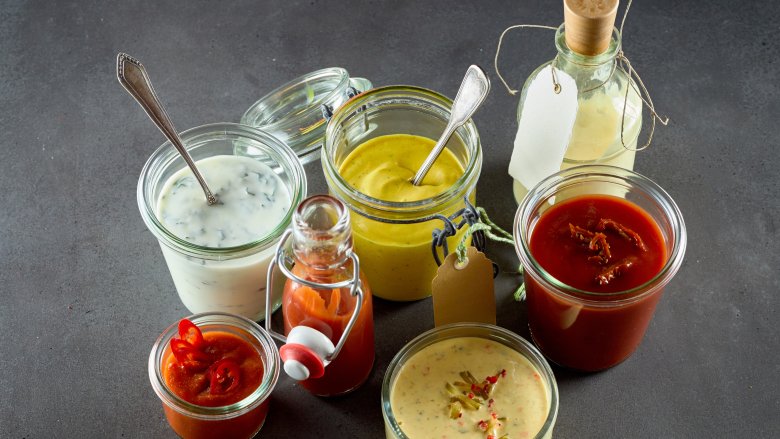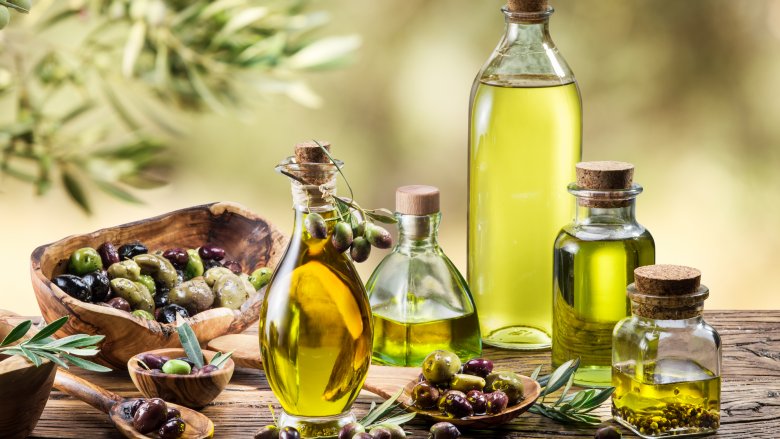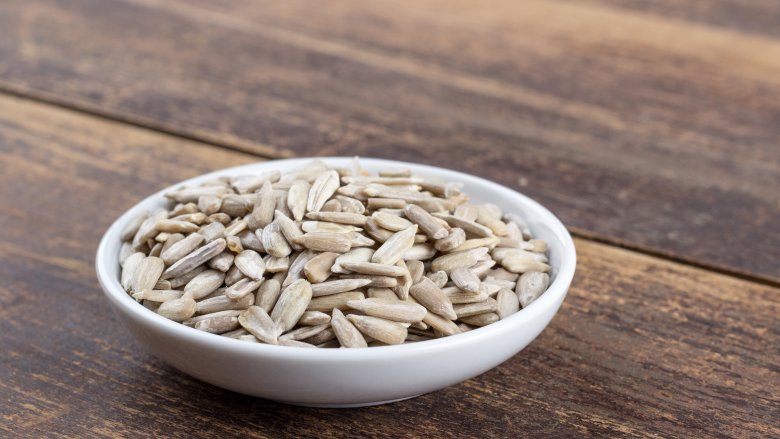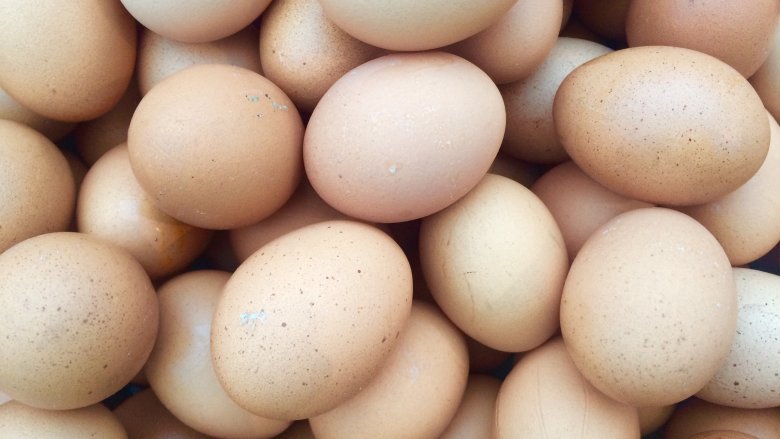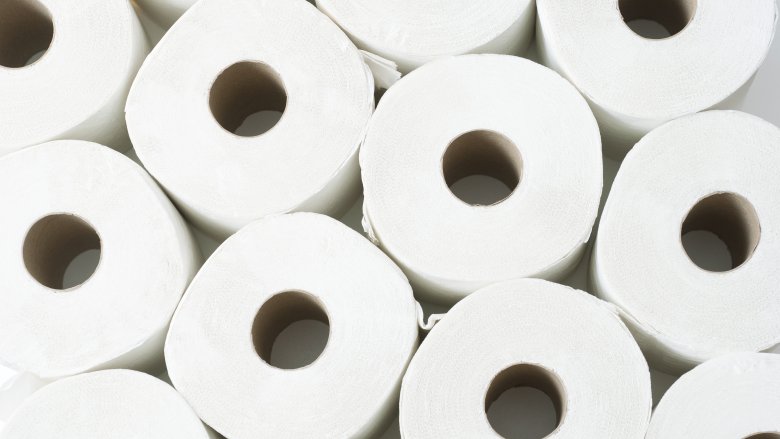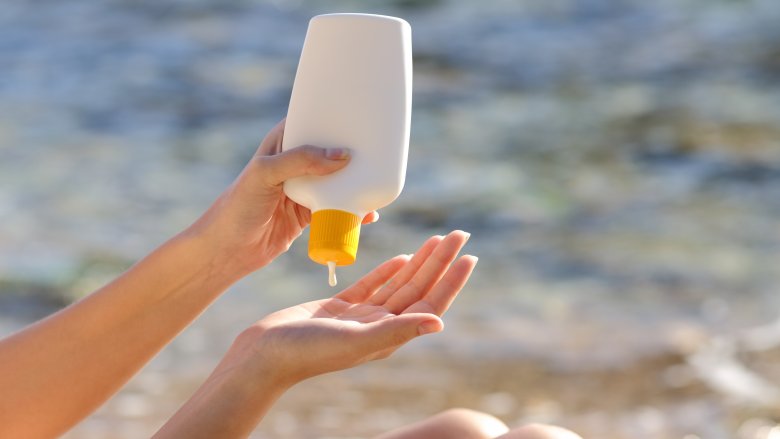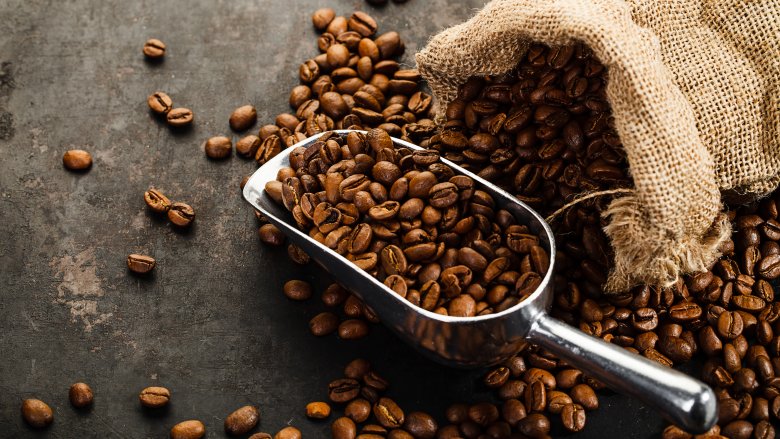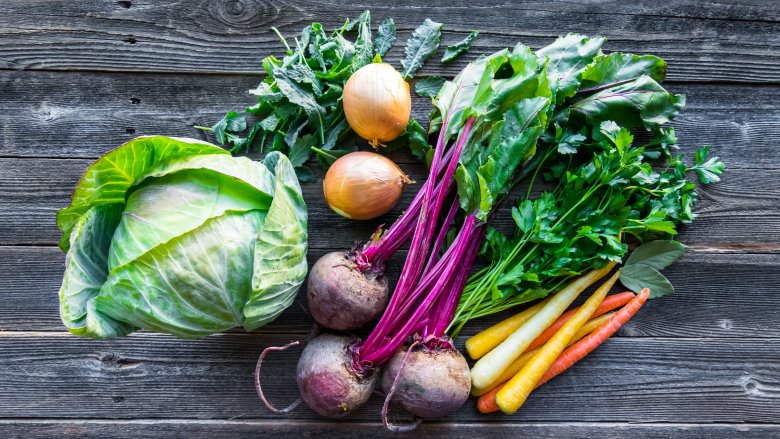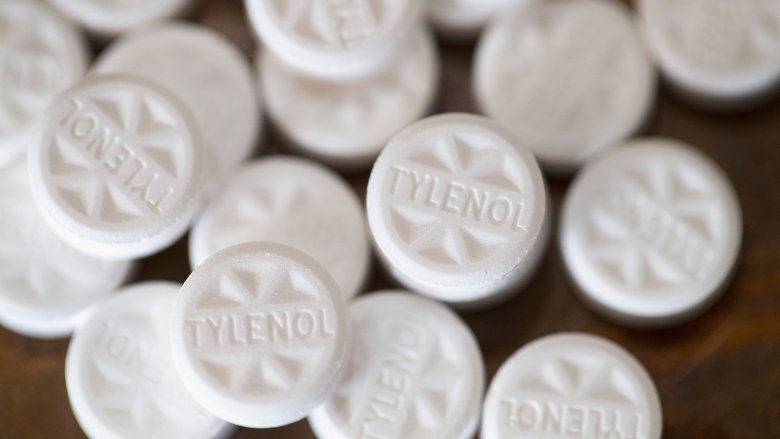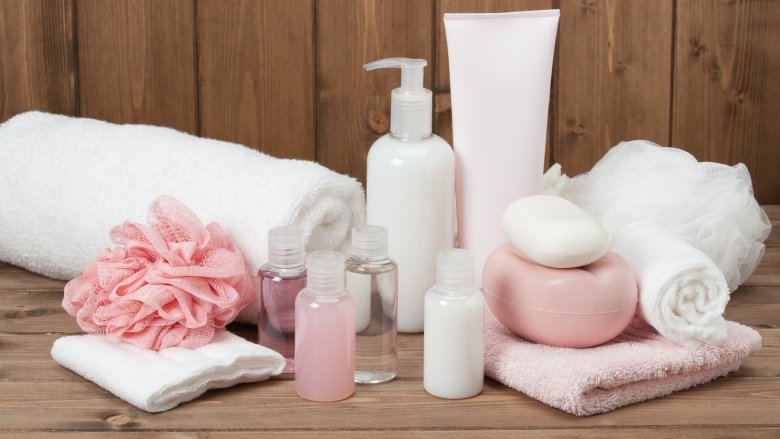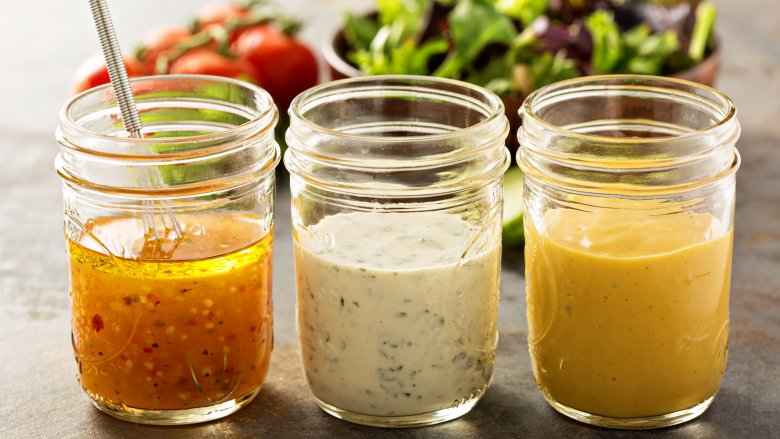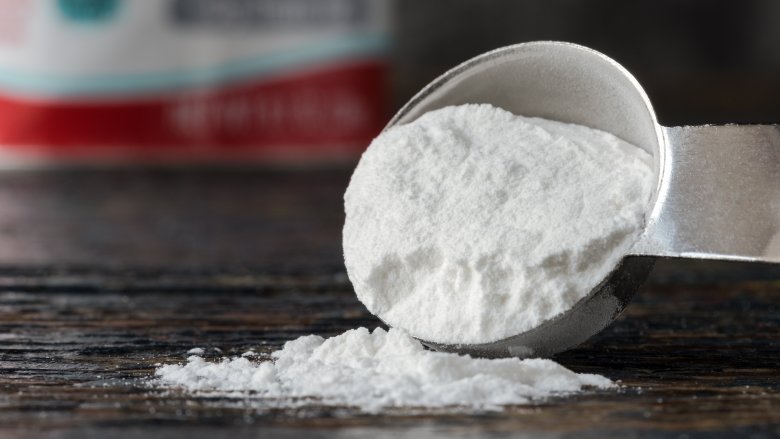Things You Should Never Buy In Bulk
Buying in bulk, whether at big-box stores or your neighborhood market, can be extremely tempting. And sometimes, it really is as great as it seems. You get plenty of whatever you need, all for a reasonable and affordable price. On the other hand, sometimes, the deals aren't exactly what they seem. If you want to make the most of your bulk buys, here's what you need to know.
Canned vegetables
While you might think that larger cans that hold more vegetables will be your best bet, Teri Gault, CEO and founder of TheGroceryGame.com told Kiplinger when there are sales on canned goods, the ones that are often marked down are the smaller ones, not the larger ones. This means you can pick up a couple of the standard-sized cans — which will end up equaling or surpassing the amount in the larger can — for less per ounce. Comparing prices per ounce (listed on the sticker alongside the price of the container) is another way to make sure you don't fool yourself into thinking you're getting a better deal on canned goods than you really are. These standard cans are also usually cheaper when on sale than the large cans on offer at big-box stores or warehouse clubs, Gault said, which means if you shop the sales at your local market, you're likely still getting a better deal.
Spices
Big containers of spices just aren't a very good idea, even if it appears as though you'll be saving money by buying them. According to Woman's Day, spices lose some of their potency within six to 12 months, which means if you buy too large of a container that you can't realistically use within about a year (or maybe a little longer), you're ultimately losing money, even if, based on the numbers, it looks like you're saving it. Over time, as your spices lose potency, you'll have to use more of them in order to get any decent flavor out of them or perhaps toss them out altogether and buy new ones. Keep the containers of spices small unless you're pretty certain you'll use it all up.
Liquid bleach
Like spices, liquid bleach only stays "fresh" and potent for so long. According to Money Crashers, liquid bleach loses effectiveness about six to 12 months after the day it was manufactured. By the time you get around to using it all, it might not even be effective anymore, meaning you're using cleaning chemicals that really aren't even doing their job to clean. Not good.
Whole wheat flour
If you do the majority of your baking with whole wheat flour, then this isn't necessarily directed at you, but if you're planning on buying some whole wheat flour for a particular baking project or sporadic baking, you're far better off buying a smaller amount than loading up on the bulk bag. According to Reader's Digest, whole wheat (and nut-based) flour lasts for a far shorter period of time than its all-purpose counterpart. That's because these types of flours contain oils that have been stripped from all-purpose flour. The oils, in turn, can go rancid, giving the flours an off-putting smell, at which point they need to be thrown away. To avoid throwing away any more flour than you need to, only buy these kinds of flours in small amounts that you can use before they go bad.
Cereal
If you buy cereal in bulk, you might not be getting the best deal you could. Like with canned veggies, it's more important to pay attention to when cereal is on sale at your local grocery store than to focus on buying it in bulk at a warehouse club. Gault told Kiplinger that the standard sized boxes of cereal (like the smaller cans of veggies) are more likely to be cheaper per ounce than the larger boxes, meaning you can get more for your money if you shop discerningly.
Condiments
Contrary to apparent popular opinion, condiments don't actually last forever, which means they're not great candidates for buying in bulk. According to Eat By Date, ketchup really only lasts for about a year. Unless you're big ketchup eaters (or have young kids!) you won't be able to eat up an entire giant bottle in that time. Most other condiments also have shorter shelf lives than you might expect, so do your homework before you buy those big containers. Stick to the smaller containers to ensure that you're not eating condiments past their prime.
Olive oil
Olive oil is another ingredient that just simply doesn't last quite as long as you might think. According to Money Crashers, olive oil really only stays fresh for about six months, and that's under ideal conditions. If your olive oil sits out and is hit with sunlight and heat all day long, it likely won't even make it that long. If you'll really use the big bottle, it might be more affordable in bulk, but if you're going to end up with half a bottle that's no longer fresh, it's not worth the money you've saved.
Seeds and grains
Again, if seeds and grains are part of your regular eating or snacking routine, it might work out well for you to purchase these kinds of things in bulk, but for everyone else, it's likely not the best idea. According to Money Crashers, these kinds of items can be quite expensive, which might tempt you to buy them in bulk, but since many of them go bad quickly, as well, (because of the same oils in whole wheat and nut-based flours) keep your purchasing in check. If you're going to buy more nuts, seeds, and grains than you can reasonably eat within several months, pack them well and store them in a freezer, cellar, or other cool, dark place where they'll last longer. Give them a quick whiff or a tiny taste to make sure they still good when you go to use them to make sure they're A-OK.
Eggs
There's rarely a reason, unless you're feeding a crowd, that you'd ever need to buy eggs in bulk, yet some people do due to a perception of major saving. Buy a dozen at the grocery store — it'll likely be less than what you'd spend on a bigger package anyway, as Reader's Digest noted. Since eggs only last between three and five weeks, on average, it's best not to have several dozen lying around, going bad. Some grocery stores even sell half dozen containers of eggs, which can be great if you're only one person and don't go through eggs very quickly. Do a price comparison before buying, however, and take into account your household egg use, just to be sure you're making the right choice.
Toilet paper
Though you'd probably think buying large quantities of toilet paper would be more cost-effective than buying individual rolls, it might not actually be so. In an interview with Kiplinger, Kendal Perez, a savings expert at Coupon Sherpa, said that if affordability is your overall goal, it's better for you to stock up on toilet paper whenever it goes on sale at your local supermarket. Additionally, manufacturers' coupons can save you even more and they're often not accepted at warehouse clubs. If affordability isn't your primary concern, however, go ahead and buy in bulk.
Sunscreen
You might think stocking up on sunscreen at the end of the summer when it's on sale is a great way to save a little bit of money, but it might not be the bright idea you think it is. In an interview with USA Today, Dr. Melda Isaac, founder of MI-Skin Dermatology Center, said you should always look at expiration dates on sunscreens because once the bottles are opened, the chemicals start to break down, meaning it's not as effective. And when it comes to sunscreen, that's a really big deal. Isaac said that physical-block sunscreens that have zinc oxide and titanium dioxide have longer shelf lives. Some dermatologists even recommend physical blockers in addition or instead of chemical blockers.
Coffee
While coffee may not go bad, per se, as Reader's Digest reported, ground coffee will start to lose both its aroma and flavor by three to five months past its sell-by date. Old coffee isn't nearly as comforting or as great a way to start your day as super-fresh coffee. To help minimize this loss, you can buy beans and grind them yourself right before use. Otherwise, you're probably better off buying smaller containers of coffee more often rather than stocking up on a giant container at a warehouse club or big-box store.
Most produce
Buying produce in bulk — especially if you don't have a particular use for it already in mind — is a bad idea for several reasons. One is that you likely won't use it all up before it starts to rot unless you're feeding a crowd. Another, as Gault told Kiplinger, is that in many cases, you're actually paying more to buy in bulk than to buy things individually. If your biggest reason for buying in bulk is to save a buck or two, that's completely counter to what you were hoping. Look around and compare prices before committing to a large amount that you may or may not be able to use.
Over-the-counter medications
Perez told US News that it's not a good idea for people to buy over-the-counter medications in bulk because, oftentimes, they'll expire before you're able to even really put a dent into the container. Consider the size of your family, your use, and how you store them when deciding if it's really the right purchase. Perez said that, for most people, it's more affordable to buy smaller quantities more frequently and to opt for generic whenever possible. Since you probably don't use them all that often, it likely doesn't actually make sense for you to buy that big bottle (or multi-pack) anyway.
Soda
If soda is on your shopping list regularly, you might want to just pick it up at your local supermarket instead of buying it in bulk at a warehouse club. In an interview with US News, family finance expert Jordan Page said you spend far more when you buy soda in large cases as opposed to smaller packages. Stick with those smaller packages and make sure you buy it when it's on sale.
Toiletries and personal care items
You might think that stocking up on toiletries and personal care items every time you head to a store that sells them in bulk is a brilliant idea, but it might not actually be a good plan. In an interview with HuffPost, Collin Morgan, a blogger at the coupon and savings site Hip2Save.com, said that personal care items that are packaged and sold in bulk at big-box stores and warehouse clubs are often marked up, making them more expensive than if you stocked up on individual items. Plus, at most supermarkets and other stores you can use manufacturers' coupons, which is typically a no-no at members only clubs. Clip your coupons and head to your local market instead.
Salad dressing
I'm a proponent of homemade salad dressings because they're tastier and often healthier than store-bought, but if you're going to buy it (and I do sometimes!), you should just get them at your local market, rather than planning on stocking up on a large supply at a warehouse club. In an interview with HuffPost, Morgan said that it is in fact cheaper per ounce than what you can get at your local grocery store, but depending on the size of the container, it's better to spend more and get less. Unless you're feeding a crowd, it might be difficult to eat up that giant tub of dressing before it loses its freshness or spoils, in which case, it really didn't save you much money anyway.
Baking powder
Unless you're running a little bakery, you probably don't bake enough to justify buying baking powder in bulk. According to Business Insider, baking powder typically only retains its freshness for about six months to one year, which means that unless you have a really good reason to buy a big tub of baking powder, it's probably not actually worth it. Skip the warehouse club and bulk bins and head to the baking aisle at your nearest grocery store instead.
